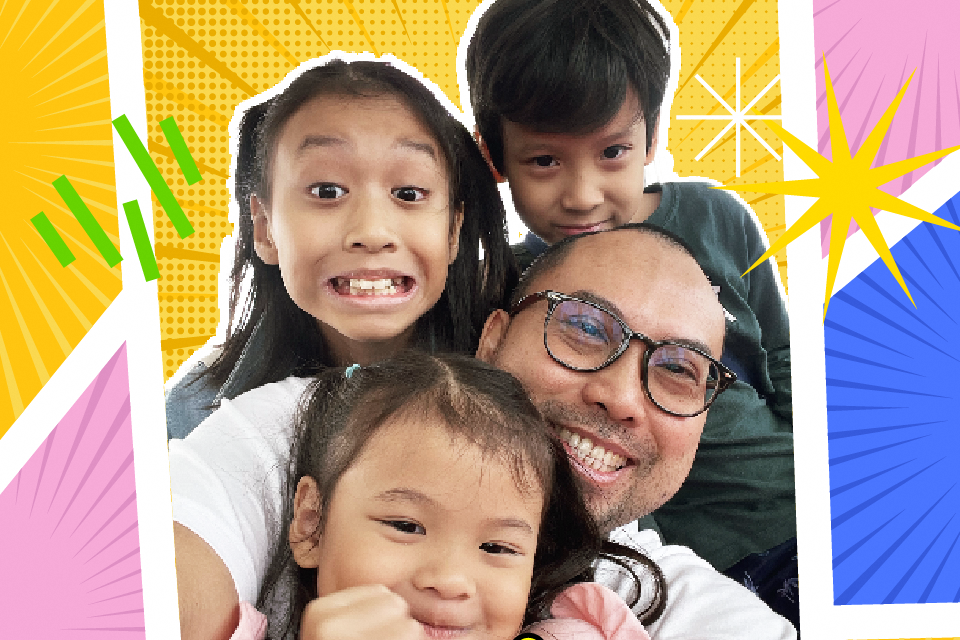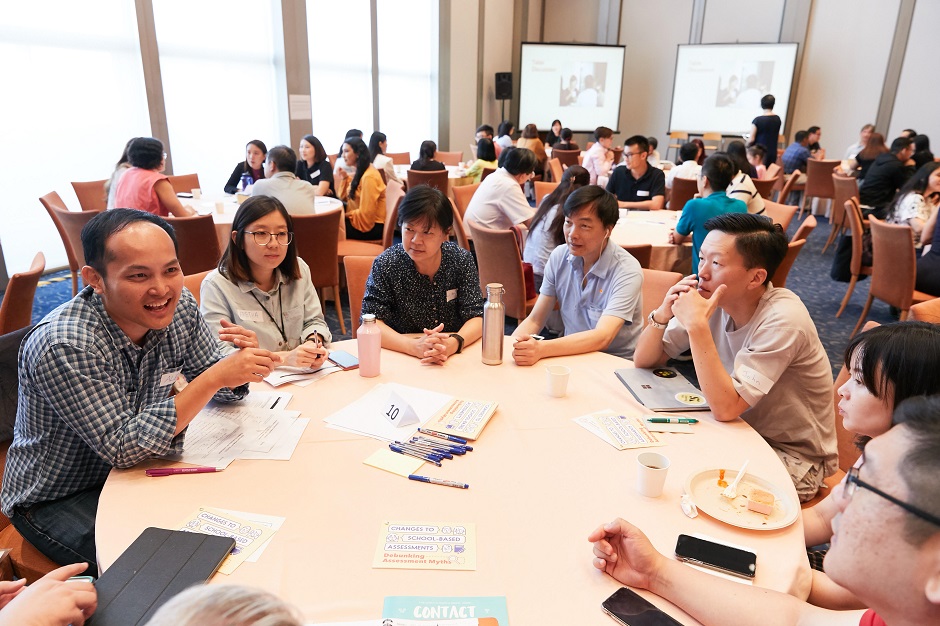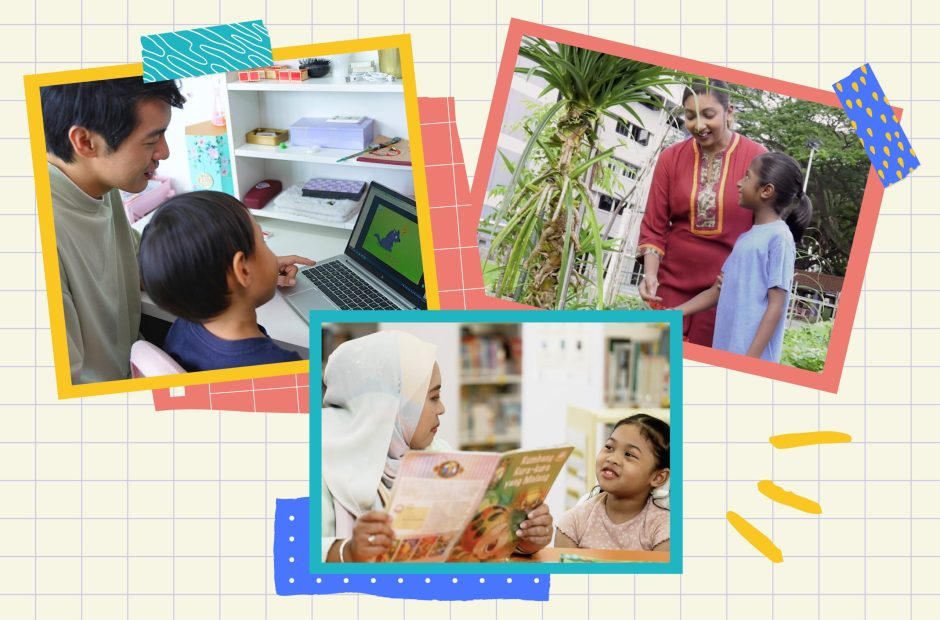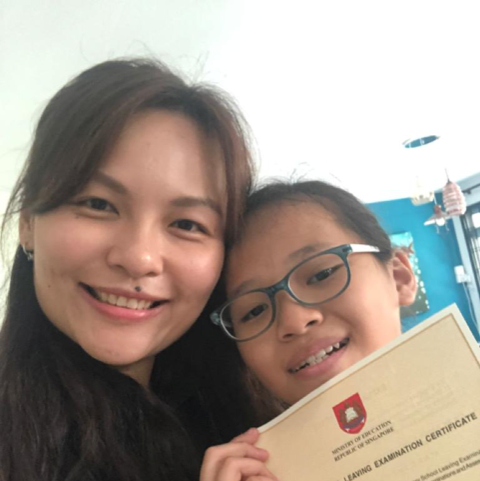Imran Johri is a part-time humour writer, full-time father of three who finds the lighter side to parenting every chance he gets.
I’ll put myself out there to say, most Singaporean parents aren’t big on hugging their kids.
Sure, I see it a lot on Day 1 of Primary 1, or exam results day, when our Singaporean survival instincts are on overdrive. But apart from that, for whatever reason, I hardly witness spontaneous acts of unconditional hugging between parent and child in public.
So yes, it seems we need a seriously good reason to just hug. What’s worse, I think, is that when we do hug, it’s an expression of an expectation. My wife and I have recently discovered that we, too, were guilty of conditional intimacy – we doled out hugs as rewards. And that’s crazy coming from me, who is a highly expressive person to say the least, so what happened?
Different strokes for different folks
This is highly likely a legacy behaviour that’s been passed down the generations.
I was raised in an environment where displays of affection between parent and child were not uncommon. Some were contextual to our culture, such as the kids greeting their elders by kissing the hands as a show of respect. My mother was the spontaneous one – she was big on forehead kisses with us, which I appreciated, and I grew up thinking that was normal.
My wife grew up in a less demonstrative household: physical displays of affection in most forms were rare; resilience, sacrifice and tough love was the de facto lingua franca for affection.
Clearly these differences were never really broached during our courtship or before we became parents. And I think we messed up on establishing our love language with our firstborn.
All day long we were going, ‘good girl!’
When our first child, a daughter, was born 11 years ago, I was ready to unleash the full force of my bear-hugging abilities on the unsuspecting baby, and my wife was ever ready with words of praise.
But here’s the cringy thing: I also started channeling my father, who had strict ideas about how children need to be set on a rigid path of discipline.
As new parents, my wife and I were very much aligned – we wouldn’t hold back on piling on the hugs, kisses and praises to reinforce good behaviour but neither would we stand for misbehaviour.
Now, I wince in retrospect at how I was always looking out for the slightest sign of mischief, when most of the time, our firstborn was just a child being a child. In fact, she was quite the model child, from as a baby to her preschool years and even when she started primary school. Day in, day out, we were going:
“Good girl!”
“Well done!”
“Great job!”
Being an awesome child meant that she rarely misbehaved, and words of praise and affirmation began to lose their weight and our hugs were, quite understandably, losing their warmth.
In fact, she consequently started to lose the need for hugs and didn’t seem to crave them at all.
Spare the rod and hug it out?
Of course, everything started unravelling with the birth of Number 2.
Born early and screaming his lungs out, our son soon demonstrated a rebellious streak that rivalled those of his parents, who were both insufferable middle children.
As he became older, we tried to introduce the cane as a disciplinary tool. He did not respond well, treating the cane as if it were a screaming amplification tool. It was an absolute poop parade. Everything became a battle of attrition, of who would tire out from the threats first – the discipliner or the disciplinee.
My wife and I were both perplexed and at a loss.
“We can’t do this to him,” she lamented.
“I know, he’s not like his sister at all,” I sighed while gnashing teeth.
And then it struck us – they’re not the same person. So we had to try something different. As it turned out, all this little boy wanted was hugs.
He is a major hugger. Hugs are his antidote for everything, even when he is in the wrong. And this was discovered during one of my more intense rod-at-the-ready situations, when I was simply too tired to continue, and gave in to my instincts and let out my own inner hugger.
Putting the cane aside, I asked, “Can I hug you, Abang?”
And with a face full of tears, he simply nodded and dove right into my arms. I felt tired, sorry and defeated. His response to it, though, was incredible – he grabbed me tightly and relented with an unreserved warmth that I had not felt in a while – and it brought instant relief to us both.
Re-understanding what it means to hold our children
So, to recap:
- Me, a previously indiscriminate hugger now hugging as a reward
- My wife, a non-hugger trying to hug as a reward
- Our daughter, who saw hugs as ineffective reinforcement
- Our son, who demanded hugs as an assurance of our love, even in undeserving situations.
Algorithmically, every permutation of hugging from any given parent to either child ended up being grossly mismatched and unnatural.
My wife and I knew then that we had to re-interpret what was required of us, for the benefit of our kids.
What we really wanted was to mete affection out as freely and as spontaneously as possible. So we dropped the whole contrived system of rewards and hugged readily.
The results have shown promise.
Our daughter has started to hug freely, when in the past, it was an uncomfortable expression for her. Our son gets all the hugs he needs to feel the love we have for him, and for discipline, we came up with a structure of incentives instead involving different permutations of Pokemon-related media and paraphernalia.
But just as we settle into this new normal, we now have to contend with our third and youngest daughter, who, as we’ve discovered now that she’s five, bestows hugs on her terms. Knowing full well her position of privilege as the youngest and cutest, she currently has us at her conditional mercy.
My wife, my two older kids and I are still trying to figure this one out.






